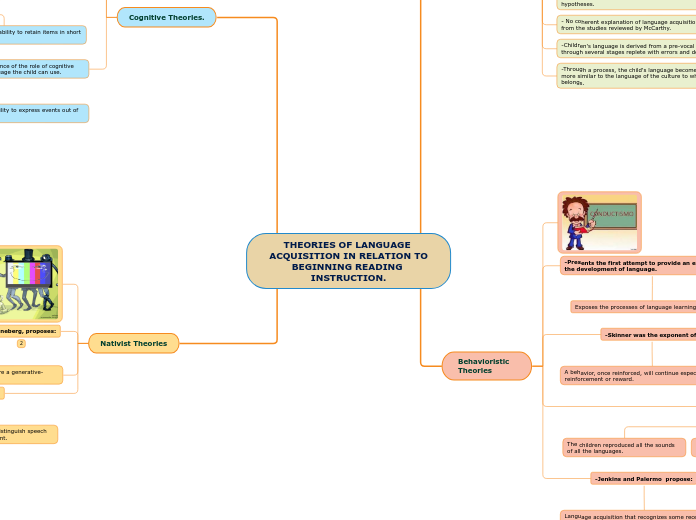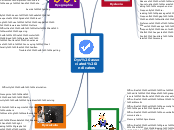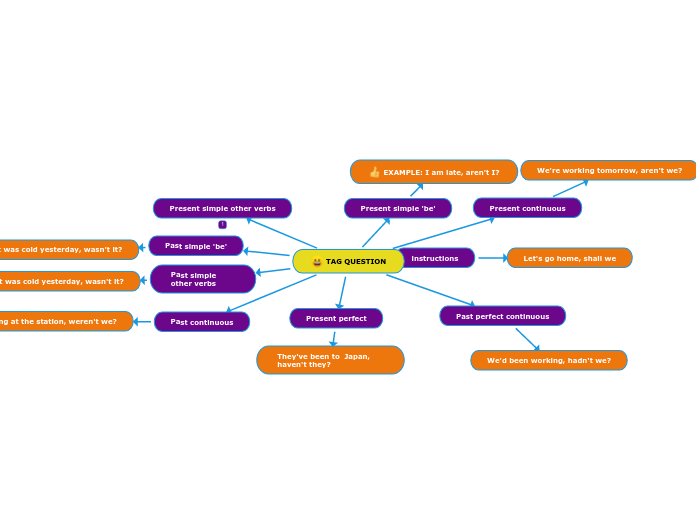por GABRIELA ANDREINA RUIZ MENDEZ 3 anos atrás
723
THEORIES OF LANGUAGE ACQUISITION IN RELATION TO BEGINNING READING INSTRUCTION.
Theories of language acquisition offer various perspectives on how children learn to read and understand language. Cognitive theories emphasize the role of mental abilities, highlighting the development of skills such as retaining short-term memory items and expressing events non-chronologically.









